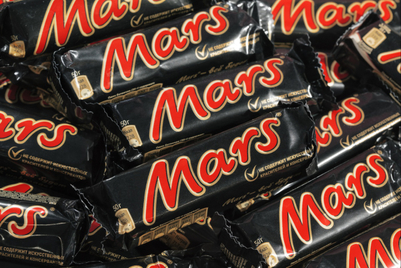.jpg&h=570&w=855&q=100&v=20250320&c=1)
Consider here, the “Local Products Shop”, which profits by drawing upon constructions of the countryside as a place of purity and moral fiber. In conversation with the shopkeeper, we are told, “When seen from the perspective of science, local products are original (原始) and have not suffered pollution (没受过污染)”, that is, where “original” is as opposed to “refined” and shares semantic proximity with “pristine” and “untouched”. Mentions are made of pure wild ginseng, “not like the transplanted stuff”, and the shopkeeper waxes lyrical about “rough cloth and candles from places where the wind of reform has never blown”. At the same time, she openly speaks her mind to my assistant, and in front of my assistant’s mother too, on issues of intra-family relations, which strikes me as a kind of over-familiarity; and she answers all my questions about her business operations by reference to personal stories inflected with local references and a rural register of intimacy — “Why, only the other day I said to Little Gao”, where Little Gao is not at all known to us. The shopkeeper thus gives the impression that she is as plain and simple as the products she sells.
When it is asserted that much of this particular kind of grape juice on the market at the moment is “fake” (假), however, the uncertainty of authenticity leaps immediately back into play and the shopkeeper jumps to defend her shop by comparing her local product Five Woman Mountain wine with national domestic brand Changyu (张欲). Asked if a bottle of Five Woman Mountain is more or less expensive than Changyu, she replies that her product is “not expensive” (not a direct answer); “only twenty-something kuai” (being vague and playing down the price); before finally saying that she “can’t speak for the whole country but the Changyu in Liaoning Province is not good” (recognizing that she has to qualify her claims slightly or risk being unconvincing). The shopkeeper thus evinces a highly tactical disposition, cultivated no doubt as the result of a life operating in the margins of social categories defined largely by others. Since she is herself so anomalously tu (土) in this urban middle-class retail context and profits precisely by traversing and reconfiguring the symbolic categories that legitimize this over her own rural roots, her occupation is somewhat treacherous indeed. But in a world of urbanizing steel and glass, this strategy works for her: her honesty, warmth and naïveté, if not entirely feigned, are skillfully affected to sell products.
Indeed, and still further, the “Local Products Shop” of course trades on another, alternative version of authenticity: a new or modern “real” of mass production and product packaging; an authenticity that “admits” that the natural and original real is “best”, but that asserts that this can be enhanced in its essence through scientific testing, measurement, branding and so on. The only difference between the pancakes sold here and those sold by the lowly “cart-pusher” (see above), indeed, is that these are branded with the name “Intellectual youth pancake” (智青煎饼), a ploy which explicitly harks back to the Cultural Revolution era when educated urban youths were “sent down” to the countryside to “purify” themselves through labor in the fields. Again, the shopkeeper’s friend uses the term zhengjing (正经)(which can mean honorable, decent and/or authentic) to describe the source of production and packaging of these products, quite as if the quality of the packaging and the shopkeeper’s own moral steadfastness perfectly justify each other. Literally, he says: “Real factory: real packaging” (正经厂家,正经包装). No further or external validation is required we are to understand: the product must be authentic because the packaging says so.
More explicit, less underhand, and altogether more strategic in his pitch, the shopkeeper’s friend then raves at great length about how contemporary multinational Amway was founded on the basis of Traditional Chinese Medicine, intending that we understand that this shop’s products are of the same order as Amway’s: “Scientific deliberation will always be superior to crude methods. The Chinese method of just grabbing a handful of this and a handful of that, charging two kuai for this, charging three kuai for that, cannot possibly stand up to scientific development”. He is immediately suspected being a promoter of Amway products. “No”, he says, “but I study marketing management”, thus making it clear that he and the shopkeeper work a double-act so that authenticity obtains in their shop because of their mutual investment in signifying that it does so. Indeed, to the extent that their packaging claims authenticity from within these overlapping discourses, their product legitimates itself!


.jpg&h=334&w=500&q=100&v=20250320&c=1)


.jpg&h=334&w=500&q=100&v=20250320&c=1)
.jpg&h=334&w=500&q=100&v=20250320&c=1)


.png&h=334&w=500&q=100&v=20250320&c=1)





.jpg&h=268&w=401&q=100&v=20250320&c=1)

.png&h=268&w=401&q=100&v=20250320&c=1)

.png&h=268&w=401&q=100&v=20250320&c=1)